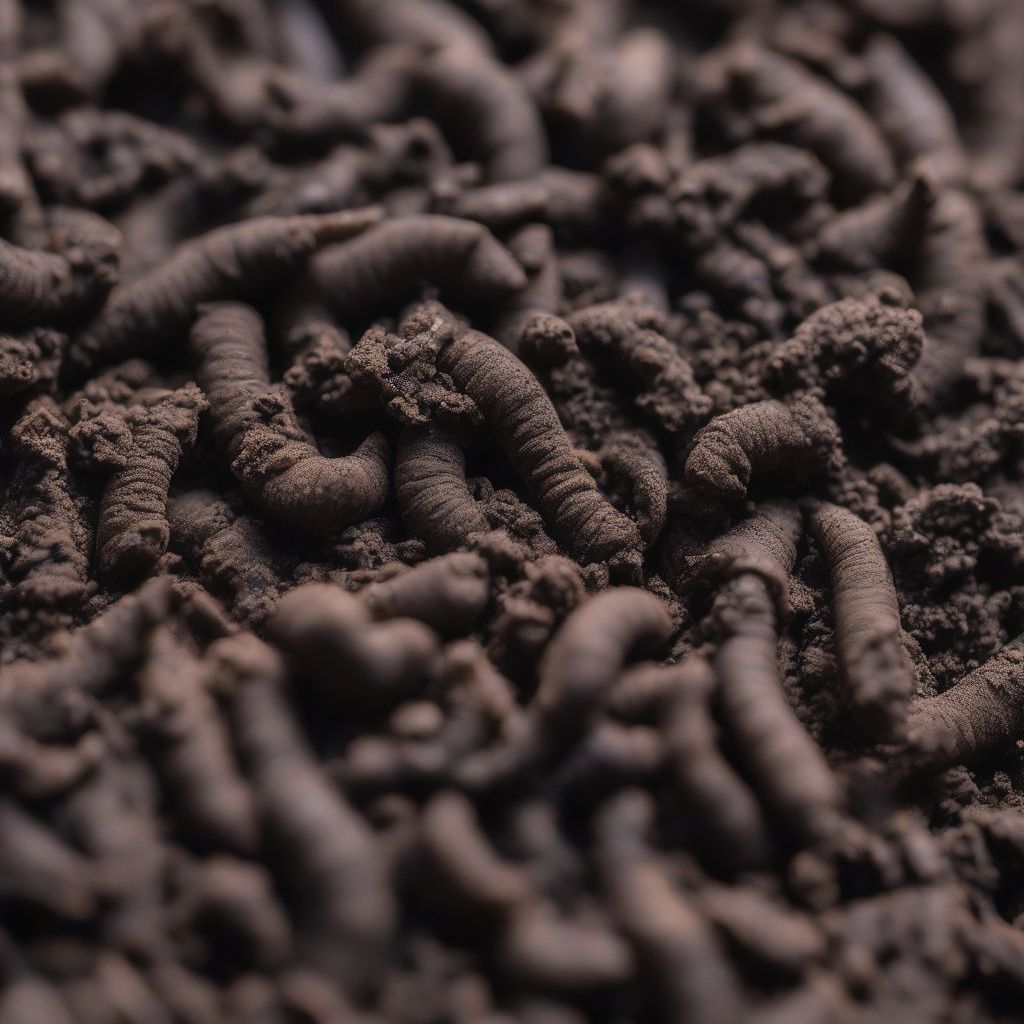Imagine this: you’re digging through your compost bin, expecting the usual earthy smell, but instead, you’re met with a rich, sweet aroma. You plunge your hand in and pull out a handful of dark, crumbly goodness. This, my friends, is the magic of worm castings, also known as vermicompost – the gold standard of compost.
As a nutrition and meal-planning expert, I’m passionate about using the best ingredients, and when it comes to nourishing your garden, nothing beats the power of high-quality compost. But what role do worms actually play in this process, and why is worm-powered compost so special? Let’s dig in (pun intended!).
The Unsung Heroes of Compost: Understanding the Role of Worms
Worms might seem like simple creatures, but they are actually incredible decomposers, tirelessly working to transform our kitchen scraps into nutrient-rich garden gold. Here’s how they do it:
1. Eating Machines:
Worms have a voracious appetite and can consume their weight in organic matter every single day. They feast on a diverse diet of fruit and vegetable scraps, coffee grounds, shredded paper, and even cardboard, breaking down these materials into smaller pieces.
2. Digestive Wonders:
The real magic happens inside the worm’s gut. As worms digest organic matter, their digestive system works with microscopic organisms like bacteria and fungi to further break down the material. This process releases nutrients in a form readily available for plants to absorb.
3. Worm Castings: Black Gold for Your Garden:
What goes in must come out, right? Well, in the case of worms, what comes out is pure garden gold! Worm castings are essentially worm poop, but don’t let that deter you. These little pellets are packed with beneficial nutrients, including nitrogen, phosphorus, potassium, and micronutrients, in readily available forms for plants.
 Worm Castings Close Up
Worm Castings Close Up
Why Worm-Powered Compost Outshines the Rest
So, we know worms work hard, but what makes their compost superior to traditional composting methods?
1. Nutrient Powerhouse:
Worm castings are significantly richer in nutrients compared to traditional compost. Studies have shown that worm castings contain five times more nitrogen, seven times more phosphorus, and eleven times more potassium than traditional compost. That’s a serious nutrient boost for your plants!
2. Improved Soil Structure:
Worm castings improve soil structure, creating air pockets that allow for better drainage and aeration – essential for healthy root development. This means your plants can access water and nutrients more efficiently.
3. Disease Suppression:
Worm castings have been shown to suppress plant diseases. They contain beneficial microbes that compete with harmful pathogens, creating a healthier growing environment for your plants.
4. Eco-Friendly Waste Reduction:
Composting with worms is an excellent way to reduce household waste. By diverting food scraps and paper products from landfills, you’re not only creating nutrient-rich compost but also minimizing your environmental impact.
FAQs About Worms and Composting
Can I just throw any worms in my compost bin?
Not all worms are created equal when it comes to composting. Red wigglers (Eisenia fetida) and red worms (Lumbricus rubellus) are the champions of compost bins, thriving in these environments and efficiently breaking down organic matter.
How do I start my own worm composting system?
Starting a worm composting system is easier than you think! You can purchase a pre-made worm bin or create your own using a plastic storage tote. Add bedding material like shredded newspaper or coconut coir, moisten it, and introduce your worm friends.
How long does it take to make worm compost?
Worms can process a surprising amount of organic material, and with the right conditions, you can expect to harvest finished vermicompost in about 3-4 months.
Embrace the Power of Worms for a Thriving Garden
Incorporating worm castings into your gardening routine is like giving your plants a potent dose of vitamins and minerals. Whether you’re a seasoned gardener or just starting out, embracing the power of worms will reward you with healthier plants, tastier vegetables, and a more sustainable approach to gardening.
So why not give worm composting a try? Your garden (and the planet) will thank you for it!
[amazon bestseller=”worm composting”]
